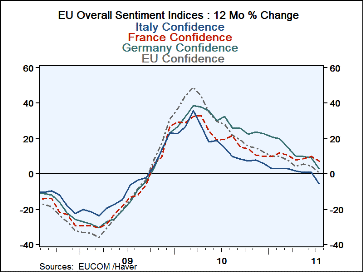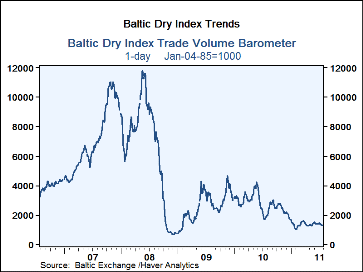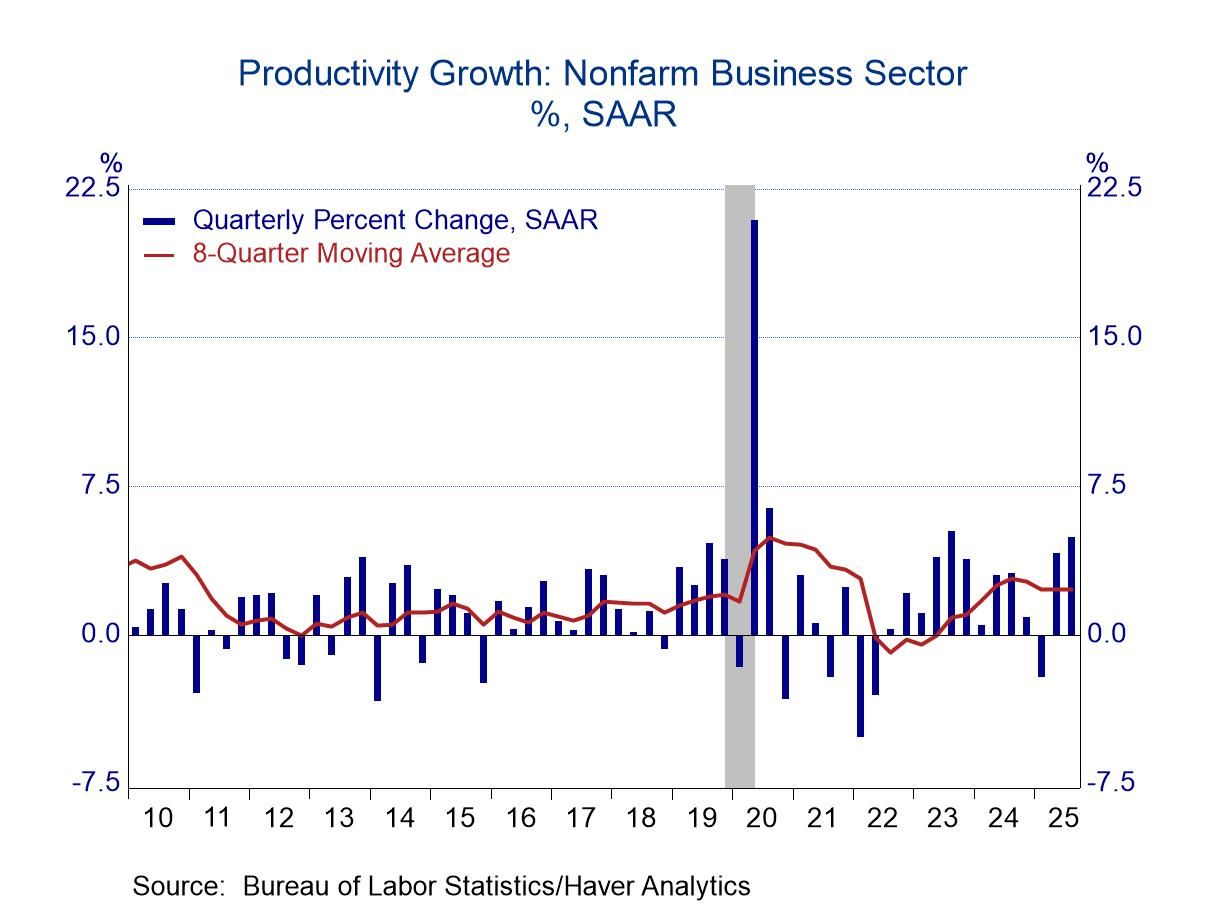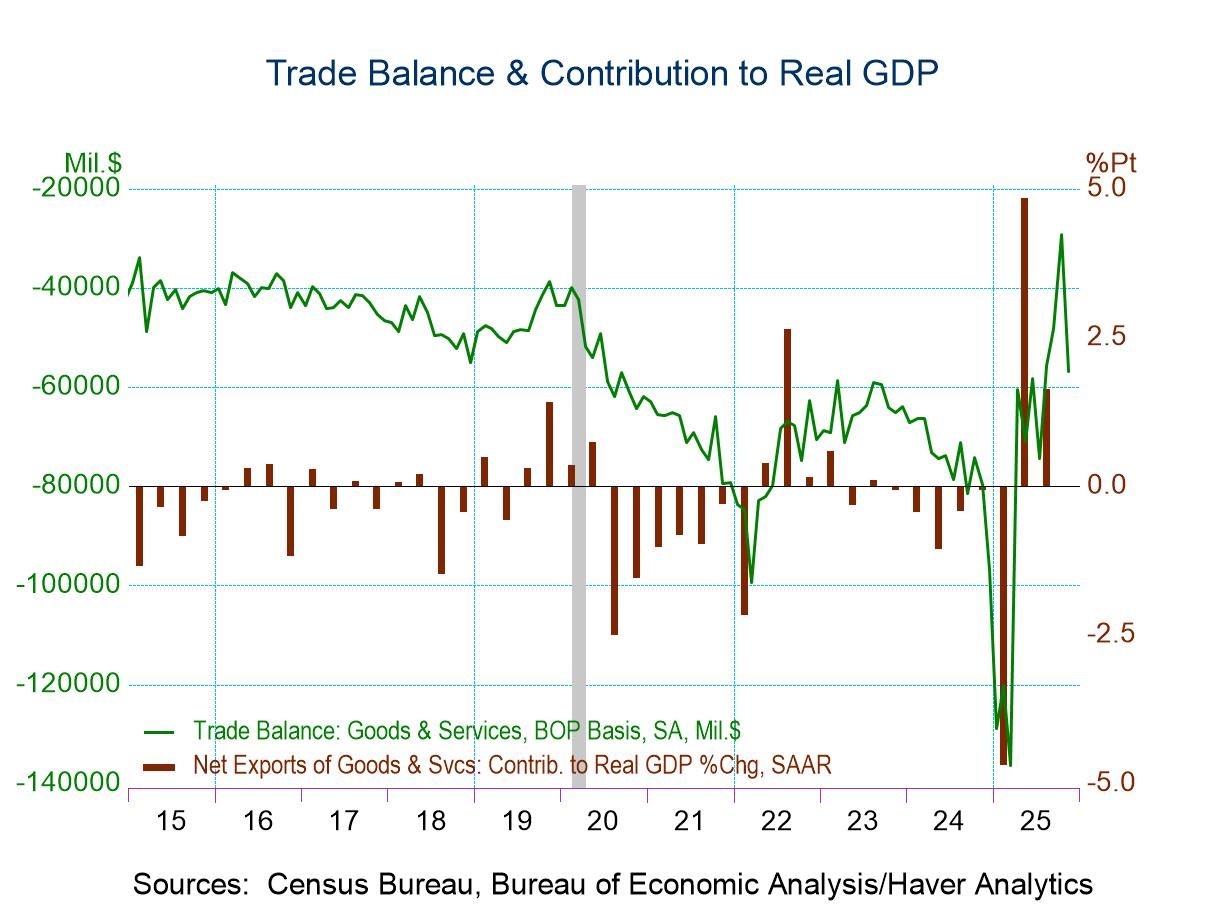 Global| Jul 28 2011
Global| Jul 28 2011Days of Rising EU Economic Sentiment are Drawing to a Close
Summary
EU sentiment is on the downslope. The rate of increase is slowing steadily on its Yr/Yr comparisons (see chart) and the monthly numbers are clustering around negative readings. The index standings are no longer high to moderate. [...]
 EU sentiment is on the downslope. The rate of increase is slowing steadily on its Yr/Yr comparisons (see chart)
and the monthly numbers are clustering around negative readings. The index standings are no longer high to
moderate. Weakness is setting in across most Zone economies. Only the still-high standing for Germany is propping
up the overall EMU reading. Without Germany the EMU reading would be much lower.
EU sentiment is on the downslope. The rate of increase is slowing steadily on its Yr/Yr comparisons (see chart)
and the monthly numbers are clustering around negative readings. The index standings are no longer high to
moderate. Weakness is setting in across most Zone economies. Only the still-high standing for Germany is propping
up the overall EMU reading. Without Germany the EMU reading would be much lower.
If we look at the country-level indicators we see the problem. The EMU overall standing is in the 58th percentile of its queue; that means that EMU is stronger than this 42% of the time. But that overall reading includes a large weight on Germany that is stronger than this only 7% of the time. Germany’s reading is in the top 93% of its queue! So among large EMU nations, France is the next best off, and it is in the 70th percentile of its queue. That means France is stronger than this, only 30% of the time. Italy, the next largest EMU economy, is stronger than this 75% of the time; only 25% of the time is Italy worse off! Spain is the next largest economy and it is better than this 77% of the time. Then we get to the troubled borrowers and we can see how dire their straits are. EMU is quickly become a zone in which one policy cannot begin to fit the bill. It’s like trying to fit a centipede for shoes when all his feet are a difference size but you are only allowed to buy one size for all.
EMU is a very troubled zone. The inclusion of Germany with its large share dresses up the reading for the Zone as a whole. But, in the end the Euro-Area is a collection of some weak- and few moderately-positioned economies with one big exception: Germany. And the ECB is making policy for Germany, it is hiking rates.
 The sector indices are showing wear and tear. These readings are zone-wide so they include the relative strong
sector readings from the German economy. The strongest EMU sector is the industrial sector which stands in the
75th percentile of its queue, higher only 25% of the time. But the next strongest is retailing that has been
higher than its current reading 40% of the time. The key services sector is in the 38th percentile of this
queue implying that it is stronger than this 62% of the time- that is not a good benchmark. And these
readings, which are not very good, come amid slipping trends.
The sector indices are showing wear and tear. These readings are zone-wide so they include the relative strong
sector readings from the German economy. The strongest EMU sector is the industrial sector which stands in the
75th percentile of its queue, higher only 25% of the time. But the next strongest is retailing that has been
higher than its current reading 40% of the time. The key services sector is in the 38th percentile of this
queue implying that it is stronger than this 62% of the time- that is not a good benchmark. And these
readings, which are not very good, come amid slipping trends.
What’s worse is that world trade seems to be slowing… One index of shipping, the Howe Robinson Container Index shows that fees for shipping have fallen by 9.3% since the end of April for a wide variety of vessels. And this is the busy season when rates are supposed to climb! This is not just the impact of shipping fewer Japanese cars. The Baltic dry index is charted above and it shows continuing low readings that have begun to hover just above the cycle low readings of late 2008.
The news from Europe is not good. The standing of European economies is not high, be they members of EMU or EU. The trend is lower. Some key European economies like Italy and Spain are showing some very weak readings. Add to that weakness in EMU the reading for the UK whose economic index is higher than the current reading 65% of the time or, if this rings truer to you, lower only 35% of the time, and you have a real worrisome slowdown on your hands. Why worrisome? Because monetary policies are being tightened and more fiscal austerity is being doled out. When the artificial headwinds stop blowing in our faces the man-made headwinds will pick up the slack!
While the German economy showed a decline in the number of unemployed and US jobless claims have slipped below the 400K mark for the first time in 16 weeks, sour data of much greater weight continue to dominate the news. There is once again not much of a silver lining to be found in the EU Commission report.
| EU Sectors and Country level Overall Sentiment | ||||||||||||
|---|---|---|---|---|---|---|---|---|---|---|---|---|
| EU | Jul 11 |
Jun 11 |
May 11 |
Apr 11 |
%ile | Rank | Max | Min | Range | Mean | By Q Rank% |
%Avg Level |
| Overall Index |
102.4 | 104.6 | 105.4 | 105.1 | 72.3 | 118 | 116 | 67 | 49 | 100 | 53.4% | 102.4 |
| Industrial | 0 | 3 | 4 | 5 | 83.0 | 63 | 8 | -39 | 47 | -7 | 75.1% | 0.0 |
| Consumer Confid |
-12 | -11 | -11 | -14 | 58.8 | 135 | 2 | -32 | 34 | -11 | 46.6% | 104.7 |
| Retail | -5 | -2 | -3 | -4 | 62.9 | 101 | 8 | -27 | 35 | -6 | 60.1% | 77.1 |
| Const. | -25 | -26 | -26 | -26 | 37.8 | 148 | 3 | -42 | 45 | -20 | 41.5% | 125.9 |
| Services | 6 | 7 | 8 | 7 | 57.6 | 109 | 34 | -32 | 66 | 10 | 38.8% | 57.3 |
| % M/M | Jul 11 |
Based on Level |
Level | % Avg | ||||||||
| EMU | -2.1% | -0.1% | -0.6% | 103.2 | 70.0 | 104 | 118 | 70 | 48 | 100 | 58.9% | 103.3 |
| Germany | -1.6% | -0.5% | -0.1% | 112.7 | 84.5 | 17 | 120 | 73 | 47 | 100 | 93.3% | 112.7 |
| France | -0.5% | 0.2% | -1.5% | 106.9 | 75.6 | 75 | 117 | 75 | 42 | 100 | 70.4% | 106.9 |
| Italy | -4.5% | 1.8% | -2.7% | 94.8 | 46.4 | 189 | 121 | 73 | 48 | 100 | 25.3% | 95.0 |
| Spain | -2.8% | 2.8% | 3.4% | 93.0 | 48.5 | 193 | 115 | 72 | 43 | 100 | 23.7% | 93.2 |
| Greece | 1.3% | -5.4% | -0.3% | 70.9 | 7.0 | 248 | 120 | 67 | 53 | 99 | 2.0% | 71.5 |
| Portugal | -1.1% | -0.7% | -2.2% | 83.7 | 31.1 | 235 | 117 | 69 | 48 | 99 | 7.1% | 84.1 |
| Memo:UK | -1.4% | -2.2% | 2.6% | 98.5 | 66.5 | 164 | 116 | 64 | 51 | 100 | 35.2% | 98.4 |
| All since June 1990 | 253 -Count | Services: | 178 -Count | |||||||||
| Sentiment is an index, sector readings are net balance diffusion measures | ||||||||||||
Robert Brusca
AuthorMore in Author Profile »Robert A. Brusca is Chief Economist of Fact and Opinion Economics, a consulting firm he founded in Manhattan. He has been an economist on Wall Street for over 25 years. He has visited central banking and large institutional clients in over 30 countries in his career as an economist. Mr. Brusca was a Divisional Research Chief at the Federal Reserve Bank of NY (Chief of the International Financial markets Division), a Fed Watcher at Irving Trust and Chief Economist at Nikko Securities International. He is widely quoted and appears in various media. Mr. Brusca holds an MA and Ph.D. in economics from Michigan State University and a BA in Economics from the University of Michigan. His research pursues his strong interests in non aligned policy economics as well as international economics. FAO Economics’ research targets investors to assist them in making better investment decisions in stocks, bonds and in a variety of international assets. The company does not manage money and has no conflicts in giving economic advice.






